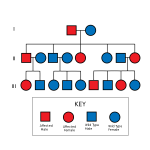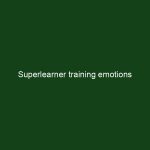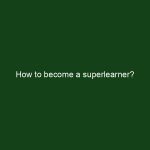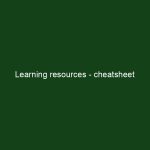The subject of synesthesia [when various senses “leak” into each other] was discussed several times during last month. First of all visit this site to learn more about synesthesia. Synesthesia naturally occurs in one out of 2000 people. If you have synestesia you can learn to do this. Moreover you could encode music, taste or …
KeyToStudy Offers:
Memory, Speedreading, and Analysis
KeyToStudy Overview:
Memory, Speedreading, and Analysis
ProlificFocus Overview:
Productivity, Motivation, and Projects
ProlificFocus Offers:
Productivity, Motivation, and Projects
Creating and using stylized markers
This is a basic and deep post that could be added to the course. It requires a bit more time and effort than a regular post on this site. I do suggest to visit all the links within and think about integrating it in your superlearning skillset. During the course we teach our students to …
Taking notes
Taking notes when learning is a very basic technique. There is a consensus that some notes should be taken be taken, yet it is not fully clear what notes should be taken and why. Notetaking for reviewing the content Occasionally we need to take note as the only/the best way to remember the content for …
Remembering multiple objects
One of the key exercises in making markers is remembering multiple objects. We have several ways of representing the object that need to be remembered and several strategies to address the memorization task. The task is very similar to remembering several markers scattered across multiple unrelated sources. The subject is being addressed in various forms …
Does superlearning cure ADD/ADHD/dyslexia?
We have long ago discovered anecdotal evidence that our methodology REALLY helps he people who have learning disabilities. Some of our students suffered dyslexia and using mental markers jumped from 20wpm to 1200wpm. Other students had trouble focusing on the text and were “cured” by the joyful gamification of speedreading. Even the students with brain …
Continue reading “Does superlearning cure ADD/ADHD/dyslexia?”
Subjects to read about
Just like you have training schedule, you could have reading schedule. Below are some posts from this blog you could read… Week Subject Suggested links 1 Superlearner Set your goals, No excuses, Get into “flow”, Change your life, Experience growth, Superlearn with others, Start visualizing 2 Visual markers Make markers fun, Use markers everywhere, Even …
Superlearner training emotions
When training superlearning abilities the students are exposed to wide range of emotions and their mood may go back and forth, like this: Week 1 +++ Being superlearner is so cool! I could read most books in an hour or two, full harry potter collection in 12 hours! – But the training looks kind of …
How to become a superlearner?
Before you start: Know what being a superlearner means Define your personal goals Understand progressive overload Commit to growth Basic training: Visualization: Learn to visualize objects Visualize concepts Manipulate visualizations in 3D Add details to visualization Memory: Generate visual markers Link visual markers together Group visual markers in chunks Generate cues for retrieval Speedreading: Preread …
Learning resources – cheatsheet
Guides at your disposal Link Descriptions Recommended usage Udemy Basic course on Udemy. First watch a section per day. After finishing the whole course, watch proper lecture according to your training. Wiki Mainly frequently used terms. Use this as a cheat-sheet to the lectures. Also if you cannot spare a dime for the actual course… …
Making markers for the new stuff
When creating mental markers for the concepts we do not have generic markers for, we need to balance the generic nature of a marker with ability to generate and retain specific markers. The visual markers we use are actually very specific and have a lot of details encoded into them, but these details are not …











